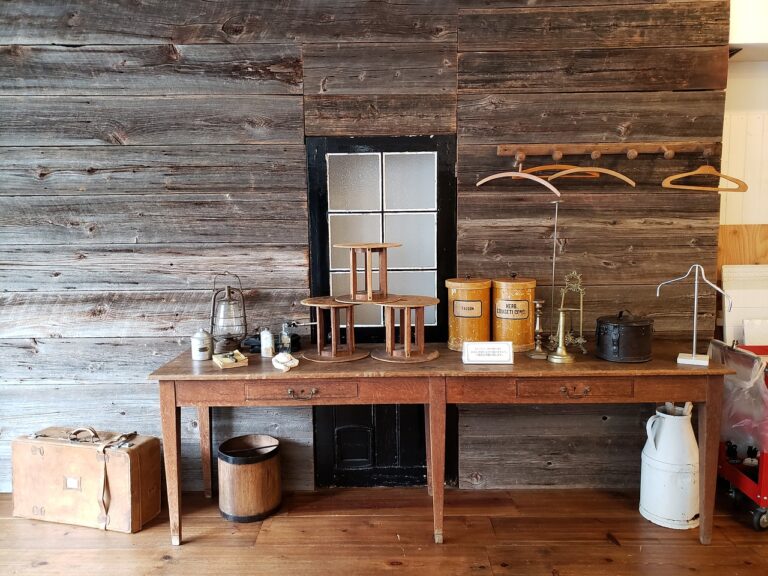The Art of Feng Shui: Harmonizing Your Home
Feng Shui is an ancient Chinese practice that focuses on harmonizing the energy flow in our living spaces. By arranging our homes in accordance with Feng Shui principles, we can create a harmonious environment that promotes health, happiness, and prosperity. In this article, we will explore the art of Feng Shui and how you can apply its principles to your own home.
History of Feng Shui
Feng Shui, which translates to “wind and water” in English, has been practiced in China for thousands of years. It is based on the belief that the arrangement of our physical surroundings can affect our health, wealth, and overall well-being. Feng Shui principles were originally used to determine auspicious locations for buildings, burial sites, and even cities. Today, Feng Shui is widely used to create harmonious living spaces that promote a sense of balance and harmony.
Basic Principles of Feng Shui
There are several key principles of Feng Shui that you should keep in mind when harmonizing your home:
1. Chi Energy
Chi, or life force energy, is a central concept in Feng Shui. It is believed that chi energy flows through our living spaces, and by arranging our homes in a way that allows chi to flow freely, we can create a harmonious environment. To enhance the flow of chi energy in your home, try to keep pathways clear and clutter to a minimum.
2. Five Elements
Another important concept in Feng Shui is the five elements: wood, fire, earth, metal, and water. Each of these elements is associated with different qualities and can be used to balance the energy in a space. By incorporating these elements into your home decor, you can create a balanced environment that promotes health and happiness.
3. Bagua Map
The Bagua map is a tool used in Feng Shui to determine the energy flow in a space. By dividing your home into nine areas, each corresponding to different aspects of life such as health, wealth, and relationships, you can identify areas that may need attention. By arranging your home according to the Bagua map, you can create a harmonious environment that supports your goals and aspirations.
4. Yin and Yang
Yin and Yang are complementary forces that represent the balance of opposites in the universe. In Feng Shui, it is important to create a balance between these forces in your home. Yin energy is feminine, passive, and receptive, while Yang energy is masculine, active, and dynamic. By incorporating both Yin and Yang qualities into your home decor, you can create a harmonious space that promotes balance and wellbeing.
How to Harmonize Your Home with Feng Shui
Now that you understand the basic principles of Feng Shui, let’s explore how you can apply these principles to your own home:
1. Clear Clutter
One of the most important steps in harmonizing your home with Feng Shui is to clear clutter. Clutter can block the flow of chi energy and create a stagnant environment. To create a harmonious space, declutter your home and keep pathways clear.
2. Balance the Five Elements
Another key aspect of Feng Shui is balancing the five elements in your home. Incorporate wood, fire, earth, metal, and water elements into your decor to create a balanced environment that promotes health and happiness.
3. Use the Bagua Map
Use the Bagua map to assess the energy flow in your home and determine areas that may need attention. Arrange your space according to the Bagua map to create a harmonious environment that supports your goals and intentions.
4. Create a Yin and Yang Balance
Balance Yin and Yang energies in your home by incorporating both passive and dynamic elements. Use soft textures, soothing colors, and gentle lighting to create a Yin energy, and incorporate bold shapes, vibrant colors, and dynamic patterns to create a Yang energy.
Frequently Asked Questions (FAQs)
1. What is the goal of Feng Shui?
The goal of Feng Shui is to create a harmonious environment that promotes health, happiness, and prosperity. By arranging our homes in accordance with Feng Shui principles, we can create a space that supports our goals and aspirations.
2. Can anyone practice Feng Shui?
Yes, anyone can practice Feng Shui! Whether you live in a small apartment or a large house, you can apply Feng Shui principles to create a harmonious space. Start by decluttering your home and incorporating the five elements into your decor.
3. How can Feng Shui improve my life?
By harmonizing your home with Feng Shui, you can create a space that promotes balance and wellbeing. Many people find that practicing Feng Shui helps them to feel more relaxed, focused, and energized in their living spaces.
4. Are there any taboos in Feng Shui?
While Feng Shui is a flexible practice that can be adapted to suit individual preferences, there are some taboos to keep in mind. Avoid placing mirrors directly facing the front door, as this can disrupt the flow of chi energy. Additionally, avoid placing your bed directly under a window, as this can create a sense of insecurity.
Overall, practicing Feng Shui can help you create a harmonious living space that promotes health, happiness, and prosperity. By incorporating the principles of Feng Shui into your home, you can create a space that supports your goals and aspirations. Happy harmonizing!






